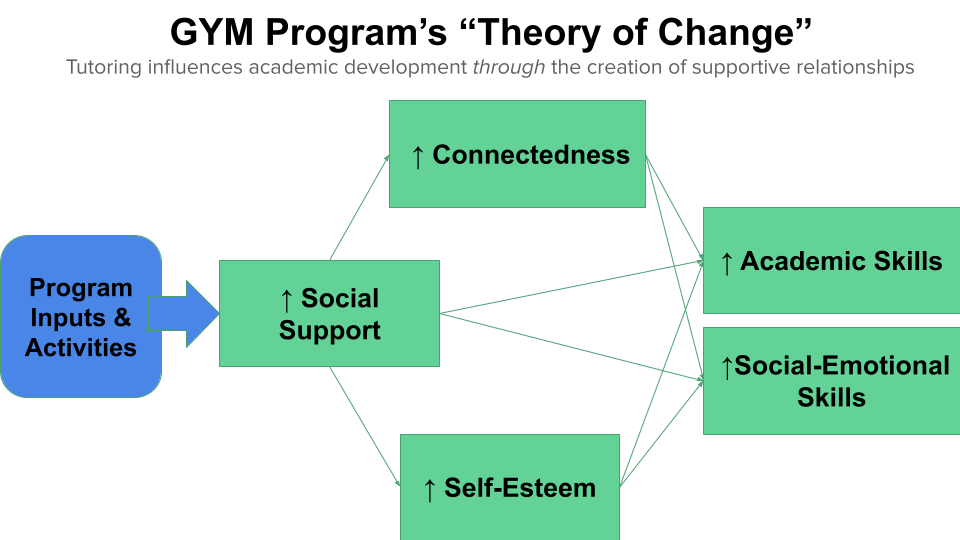Theory of Change
Our Theory of Change
The Generational Youth Mentoring (GYM) Program is grounded in research from the fields of education, psychology, and neuroscience. Our theory of change guided our program development at every level of program administration and evaluation. At the center of our theory of change are social relationships, and the importance of social support for academic and social success.
Grounded in Developmental Mentoring
The GYM program is intended to influence academic development through the creation of supportive relationships, and was designed to facilitate the social and academic development of both child students and adolescent mentors. Through participation in the GYM program, both mentors and their younger students develop social skills and experience interpersonal and academic support that served to promote their self-esteem and connectedness to school and others. Elementary student mentees continue in the program for years, developing into mentors-in-training in middle school, and into mentors themselves in high school.
Social Support
The first pillar of our theory of change is social support. By fostering close bonds between the mentor and their student, both could feel empowered to both provide social support and to seek out social support within the mentoring relationship and within other close relationships. For mentors, there was an added component of social support from program staff, and from fellow mentors during professional development workshops.
Connectedness
Increases in social support could foster greater feelings of connectedness that transfer to other important relationships, like those with parents and teachers, to promote academic achievement. Working one-on-one with a mentor, mentees had the opportunity to reflect on their goals and create plans to achieve those goals. Mentors had the opportunity to connect with mentees, but also with program staff and fellow mentors through professional development and enrichment opportunities.
Self-esteem
By fostering social connections and social support, the GYM program aimed to increase feelings of self esteem for both mentors and mentees. The tools and support, assistance on schoolwork, and goal setting gained in one-on-one mentoring sessions could help mentees improve self esteem while providing continued improvement in academic and social skills. Mentors, in turn, had the opportunity to recognize their own strengths by working directly with younger mentees, improving their own sense of self-esteem and self-efficacy.
Academic and Social Skills
All of the social support, connectedness, and self esteem components of the GYM program were designed with the goal of improving academic and socioemotional skills for mentors and mentees. Through one-on-one mentoring, increases in social support, self confidence, and social connection to oneself and one’s future, the GYM program intended to support all aspects of students’ wellbeing and potential.

